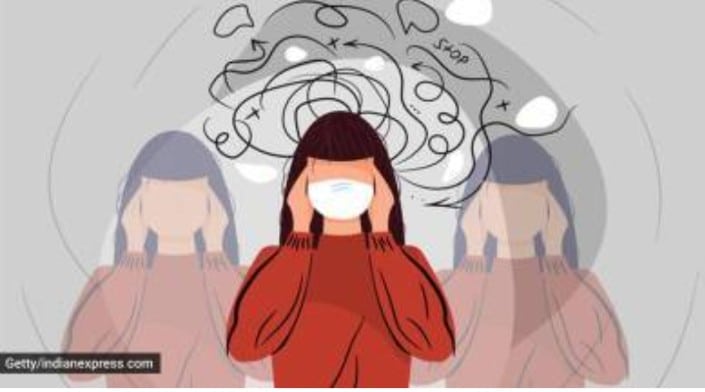Brain fog is a term used to describe the feeling of being mentally sluggish and confused, it is not a medical condition but a form of lifestyle disorder that has become widespread after the COVID -19 pandemic. It is a group of cognitive disorders with multiple causes, let’s understand this new term.

Brain fog is a lack of mental clarity which can affect one’s ability to focus and affects information processing, reasoning , thinking and making sense of language. It is just like a feeling of being shrouded by a thick fog with an inability to think clearly, grasp ideas and feeling confused or disoriented having trouble recalling memories.
Clinical psychologist Sabrina Romanoff has said, ‘Ultimately brain fog can impact the way you feel about yourself. Individuals often do not feel like themselves as the loss of mental sharpness feels foreign to them.’ Many people suffering from this condition do not even realise they are having it, people find it difficult to remember their daily chores, face problems in doing the grocery shopping as they forget their lists and find themselves lost in the vernacular navigation points, they are not aware that they are cooking something and are unable to find the track of the activities they performed minutes ago.
In the short term brain fog can be manageable but its long term implications can alter the overall habits of a person and leave an indelible mark on the personal and professional relationships of people causing mental traumas and making their transition back to normal life very difficult.

Causes of brain fog
Brain fog was identified by an abnormal change in volume of the brain as detected by the MRI experts could also relate it with the decrease in levels of oxygen to the areas of brain engaged in memory and information processing.
It can usually be caused as an aftereffect of a chronic disease like COVID, multiple sclerosis and often due to long term stress, lack of sleep , deficiency of some nutrients like vitamin B or some viral or other diseases. No specific tests are available for detecting brain fog but it can be recognized using a combination of tests.
Need to diagnose if you have it
Studies have found problems with attention and executive function of the brain it can be tested with different tests and assessments. People after COVID and due to other stress have faced problem with processing speed, verbal and non verbal reasoning often a problem with memory is not found . However, the severity of brain fog cannot be estimated.
If you need to find out whether you are suffering from brain fog then you need to note the changes in your regular sleep, diet or stress levels. You need to track down any symptoms you are facing and record changes in them.This information will help you to analyze and your doctor to diagnose the concern effectively.
Way Forward
Our changing lifestyle have brought new disorders with the juncture of time , we can improve the same by bringing about small changes in our daily activities like
Getting enough sleep – this will help the brain to clear the negativity and toxins and also relax and revitalize. Avoiding use of electronic gadgets just before sleep will also be of great help
Meditation – This will help to improve focus and memory
Engaging in mentally stimulating activities – Brain stimulating activities like puzzles, mnemonics and listening to music and memory sharpening activities engage the brain and improve memory
Healthy diet – it enhances the overall health and performance
Stay physically active – exercise , yoga and other forms of activities will all promote brain activity and proper hormonal secretion.
Hence, lifestyle disorders must be diagnosed properly and proper clinical trials with proper assessment by psychologists and doctors must be done. Apart from proper sleep, medication and proper treatment and recovery from brain fog must be done in a holistic manner.

Way Forward
Our changing lifestyle have brought new disorders with the juncture of time , we can improve the same by bringing about small changes in our daily activities like
Getting enough sleep – this will help the brain to clear the negativity and toxins and also relax and revitalize. Avoiding use of electronic gadgets just before sleep will also be of great help
Meditation – This will help to improve focus and memory
Engaging in mentally stimulating activities – Brain stimulating activities like puzzles, mnemonics and listening to music and memory sharpening activities engage the brain and improve memory
Healthy diet – it enhances the overall health and performance
Stay physically active – exercise , yoga and other forms of activities will all promote brain activity and proper hormonal secretion.
Hence, lifestyle disorders must be diagnosed properly and proper clinical trials with proper assessment by psychologists and doctors must be done. Apart from proper sleep, medication and proper treatment and recovery from brain fog must be done in a holistic manner.












